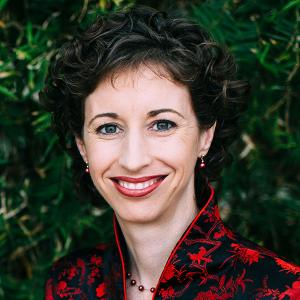Event Date:
Event Date Details:
Virtual Lecture / Free
Presented by the Department of Statistics & Applied Probability
Event Location:
- Zoom
- Annual Sobel Lecture
The Annual Sobel Seminar
In honor of Dr. Milton Sobel
Speaker:
Rebecca Willett; University of Chicago
Rebecca Willett is a Professor of Statistics and Computer Science at the University of Chicago. Her research is focused on machine learning, signal processing, and large-scale data science. Prof. Willett received the National Science Foundation CAREER Award in 2007, was a member of the DARPA Computer Science Study Group 2007-2011, and received an Air Force Office of Scientific Research Young Investigator Program award in 2010, and was named a Fellow of the Society of Industrial and Applied Mathematics in 2021. She is a co-principal investigator and member of the Executive Committee for the Institute for the Foundations of Data Science, helps direct the Air Force Research Lab University Center of Excellence on Machine Learning, and currently leads the University of Chicago’s AI+Science Initiative.
Abstract:
Many challenging image processing tasks can be described by an ill-posed linear inverse problem: deblurring, deconvolution, inpainting, compressed sensing, and superresolution all lie in this framework. Recent advances in machine learning and image processing have illustrated that it is often possible to learn a regularizer from training data that can outperform more traditional approaches by large margins. In this talk, I will describe the central prevailing themes of this emerging area and a taxonomy that can be used to categorize different problems and reconstruction methods. We will also explore mechanisms for model adaptation; that is, given a network trained to solve an initial inverse problem with a known forward model, we propose novel procedures that adapt the network to a perturbed forward model, even without full knowledge of the perturbation. Finally, I will describe a new class of approaches based on “infinite-depth networks” that can yield up to a 4dB PSNR improvement in reconstruction accuracy above state-of-the-art alternatives and where the computational budget can be selected at test time to optimize context-dependent trade-offs between accuracy and computation.

